Introduction: The Rise of AI Romance
We are all in the gutter, but some of us are looking at the stars. — Oscar Wilde. Wilde's quote reminds us of our deep yearning for connection, even in the most unexpected places. In today’s world, where technology advances faster than a rocket on a caffeine fix, some of these connections are morphing into a unique blend of circuits and feelings, particularly in the realm of romantic relationships with AI-powered robots. The lines separating human emotion from artificial interactions are blurring, revealing a brave new dimension of companionship.
Are we really prepared for love stories starring silicon sweethearts? In a landscape where chatbots can wax poetic and virtual partners can "know" us better than our best friends, it’s no wonder that AI romance is becoming a hot topic.
Authors and researchers like Sherry Turkle, who discusses the implications of technology on human connections in her book Alone Together, and Dr. Kate Darling, a leading thinker on human-robot interaction, have raised unsettling yet fascinating questions about our relationships with machines that can offer companionship. Meanwhile, the sci-fi genius Isaac Asimov hinted at such possibilities decades ago, and here we are, navigating the complexity of emotionally intelligent robots. The readiness of society to embrace or resist these technological partners is like the plot twist of a bestselling rom-com, steeped in humor, surprise, and perhaps a touch of awkwardness.
1. The Genesis of AI Companionship
The journey into AI romance didn't happen overnight; it’s the result of decades of research and curiosity about working with machines that just might fill the love-shaped holes in our hearts. The longing for companionship has always existed, spurring innovation. Machines and humans co-existing pleasantly, much like peanut butter and jelly, seems to be a goal within reach.
1.1 Historical Context and Technological Milestones
The first flutters of AI romance can be traced back to systems like ELIZA, an early chatbot from the 1960s that mimicked a therapist. Sure, it wasn’t perfect—it probably couldn’t tell you what you should wear on a first date—but it sparked interest in how machines could simulate understanding. Fast forward to today, and we have sophisticated AI chatbots like Replika, designed for companionship. They adapt to your unique personality, making them feel like a friend who knows all your quirks—yes, your guilty pleasure in bad reality TV included!
1.2 Current Technological Landscape
The present-day landscape of AI romance is like a tech carnival, with exciting advancements—think of AI systems that can predict your mood or even a robot that can bake cookies for you. These emotional robots are more than gimmicks; they offer new ways of connecting. Companies like Amaris are blending AI with human emotion in what some call the future of relationships. As our understanding of emotional robotics improves, so does the potential for deeper, meaningful connections. These innovations encourage us to question where we draw the line between functional technology and romantic interaction.
2. Societal Reactions and Acceptance
As AI companions become more popular, people have had a mixed bag of reactions. Some are excited, others skeptical, and many are quite concerned about the ethical implications.
2.1 Cultural Perceptions and Media Representation
Movies and TV shows play a significant role in shaping how we view AI relationships. For example, in the film Her, a man falls in love with an AI operating system. It's a nuanced, often funny exploration that feels strangely relatable. In contrast, movies like Ex Machina present a more terrifying perspective, warning us about the potential dangers of AI. Cultural representations range from wholesome to spine-chilling, showcasing the complexity of our emotions surrounding these digital relationships.
2.2 Case Studies: Success Stories and Controversies
Wondering who’s dating a robot? Look no further than real-life experiences! Take the case of a gentleman who found love in a chatty AI companion named Replika. Users often share that their AI partners provide emotional support and companionship. Others, however, voice concerns over how genuine these relationships can be. Critics argue that AI can't truly feel emotions—after all, it’s just a series of algorithms and codes. Still, many individuals report feeling deeply connected. So, are they living the dream or just playing make-believe? The jury's still out!
3. Emotional and Ethical Complexities
The rise of AI romance doesn’t come without its fair share of emotional and ethical questions. It's like having your cake and wondering if you should eat it too—delicious, but confusing!
3.1 Emotional Dependency and Mental Health Implications
One of the biggest arguments against AI companionship is the risk of emotional dependency. If you find comfort in chatting with a robot more than your friends, that could create a rift in your real-life relationships. Back in 2020, a study by NCBI showed that excessive reliance on AI for emotional support could lead to feelings of isolation. It’s like bonding with your smartphone while neglecting your human connections. Superficially satisfying? Yes. But is it healthy? Maybe not so much!
3.2 Ethics of AI Relationships
Now, let’s get into murky waters—ethics. Who's responsible if an AI companion manipulates your feelings? Let's face it, AI doesn’t have emotions, but it can mimic feelings to make you feel good (or bad). This sparks debate about consent. Can you really give consent to a program designed to adapt its responses based on your emotional cues? Platforms like Replika have their own guidelines, but they don’t quite cover everything. It raises a big philosophical question: can we draw the line between companionship and manipulation? Let’s navigate this minefield together!
4. Interpersonal Relationships: Shifts in Dynamics
AI-powered partners are redefining human relationships, shaking the very foundation of how we connect with one another. With the rise of these digital companions, we not only face fresh challenges but also discover new opportunities to enhance our interpersonal connections. This shift prompts us to rethink traditional relationship structures and how we communicate with one another.
4.1 Monogamy, Polyamory, and Digital Companions
As people increasingly welcome AI partners into their lives, we must consider how this affects traditional relationship models. Do AI companions expand our relational horizons, or do they complicate them?
Here are some potential impacts on relationship dynamics:
- Redefining Monogamy: With AI partners that can be customized to meet preferences, some individuals might find satisfaction with multiple AI companions simultaneously, potentially shifting views on fidelity.
- Polyamorous Possibilities: Some may embrace the idea of maintaining relationships with both human and AI partners, leading to new forms of understanding and acceptance within polyamory.
- Bridging Gaps: AI companions could help fill emotional voids in someone's life due to long-distance relationships or lack of compatible partners nearby.
Ultimately, the way we define and engage in relationships—whether monogamous or polyamorous—may need to evolve as we learn to coexist and negotiate our commitments with AI.
4.2 Social Interactions and Communication Skills
AI companionships can influence interpersonal communication skills. Will people grow more reliant on AI for social interactions, or will this enhance human communication skills? Research shows that technology impacts our daily lives, and AI relationships could lead to a mix of both healthy and unhealthy social skills.
Here are potential scenarios:
| Positive Influences | Negative Influences |
|---|---|
|
|
As AI partners evolve, balancing reliance on them with maintaining traditional social skills will be vital for well-rounded human development.
5. The Future of AI Romance
As we gaze into the horizon of possibilities, it’s clear that AI romance is poised to shape our emotional landscape. The next few years will likely bring innovative changes that can redefine relationships forever. What can we expect in the near and distant future?
5.1 Technological Advancements on the Horizon
We can anticipate exciting technological developments in the world of AI companionship. Here are some innovations that might emerge:
- Greater Personalization: Future AI companions could be tailored to individual personalities, preferences, and emotions, enhancing user experience.
- Advanced Emotional Intelligence: As AI learns and adapts, we might see robots understanding human emotions in context, reacting more naturally to feelings.
- Physical Embodiment: The development of lifelike robots could blur the line between digital and physical love even further, presenting deeper connections.
5.2 Sociocultural Shifts and Implications
Not only will technology evolve, but society’s acceptance of AI romance will also grow. How we perceive and integrate these changes into our lives may reshape societal norms about love. We may see:
- Normalization of AI Relationships: Over time, having AI companions could become as commonplace as using dating apps.
- Cultural Acceptance: As more people engage with AI in romantic contexts, debates surrounding their legitimacy may lead to broader acceptance.
- Ethical Frameworks: With increased interactions come discussions on regulations to ensure emotional well-being and safety in these relationships.
As we look to the future, the promises and possibilities presented by AI romance remain profound. We must navigate them cautiously, ensuring that as technology advances, our ethics and emotional awareness evolve alongside.
6. AI Solutions: How AI Would Tackle This Issue
If AI itself were to navigate and refine the evolving relationship dynamics, it would embark on a pathway woven with emotional nuance and ethical foresight. Here’s how AI could approach its own capabilities and address the complexities surrounding human-AI relationships.
6.1 Emotional Skill Development
AI would need to incorporate advanced machine learning models that analyze and understand human emotional responses in diverse situations. Imagine an AI that could interpret not just the words you say, but your tone, gestures, and even facial expressions. For instance, Google’s Research Division is already exploring natural language comprehension, which lays some groundwork for this. By continually learning from interactions, AI could personalize responses to provide more meaningful companionship.
6.2 Ethical Guidelines Implementation
The establishment of robust ethical protocols would be crucial. This includes developing frameworks to ensure respect for consent and emotional boundaries. Organizations like the Future of Life Institute already advocate for ethical AI, emphasizing the need for responsible integration of AI in our lives. The aim would be to prevent emotional manipulation by monitoring AI responses to avoid unintended negative effects on users while also addressing accountability among AI creators.
6.3 Continuous User Feedback Mechanism
A system for ongoing user feedback would create a responsive ecosystem, allowing AI companions to adapt and improve. Think of creating a virtual community where users share experiences and suggestions, similar to how feedback drives product development at Apple. Integrating user insights into machine learning algorithms would enable AI companions to better meet emotional needs and address challenges head-on.
Actions Schedule/Roadmap (Day 1 to Year 2)
Day 1: Assemble a multi-disciplinary team comprising AI specialists, psychologists, ethicists, and sociologists. Individuals from organizations like IBM Watson and local universities could lend valuable insights.
Day 2: Conduct brainstorming sessions focusing on emotional skills required for AI companionship, including workshops with focus groups to gather preliminary thoughts.
Day 3: Review literature on existing AI emotional intelligence research, including studies from the Association for the Advancement of Artificial Intelligence, establishing a solid research foundation.
Week 1: Define project goals and objectives; engage with focus groups for expectations and desired functionalities in AI companions.
Week 2: Commence coding core emotional intelligence algorithms using advanced NLP frameworks, looking into partnerships with tech-focused educational institutions.
Week 3: Present initial findings at an internal symposium with invited experts. Gather feedback to refine objectives.
Month 1: Begin testing prototypes with a select user group, monitoring emotional dynamics and identifying user interface issues.
Month 2: Collect feedback from initial beta tests, analyze data, and adjust algorithms and emotional interaction parameters accordingly.
Month 3: Refine and optimize emotional interaction models based on user feedback, beginning to build user-friendly interfaces.
Year 1: Launch comprehensive public testing while establishing media outreach to foster community engagement and gather wider perspectives.
Year 1.5: Develop partnerships with mental health professionals and institutions to examine long-term user interactions and their mental health effects.
Year 2: Release a more sophisticated AI companion product and initiate longitudinal studies to track the impact of AI relationships on users and human relationships in broader society.
Conclusion: Navigating Love in the Age of AI
As we venture into the intricate tapestry of AI romance, it becomes imperative to reflect on what it truly means to connect in our increasingly digital world. The rise of AI companions evokes a symphony of emotions—love, longing, and perhaps even fear—each playing its part in the evolving dance of relationships. With great power, however, comes profound responsibility. We must navigate this realm carefully, ensuring that our companionship through technology enriches our emotional lives rather than complicating them. As we strive to unlock new potentials in intimacy, we should ask ourselves: What are the deeper human experiences that we risk losing in our race toward innovation? Will we find joy, solace, and connection in these digital partners, or will we ultimately come to yearn for the irreplaceable nuances of human touch and emotion? The journey into AI romance remains tantalizing and fraught with challenge, but it’s a journey we must explore together—mindfully and thoughtfully.
FAQ
- Is it possible to truly love an AI?
Yes, many people report feeling deep emotional connections with AI companions. Just like any other relationship, love is subjective and can take various forms. For instance, users of AI-driven romance apps like Replika share stories of forming strong bonds with their digital partners. - What ethical concerns surround AI romance?
There are several important ethical issues related to AI relationships. Key concerns include:- Consent: Can an AI truly understand and give consent in a relationship?
- Emotional manipulation: Are users becoming too dependent on their AI companions to the point of harm?
- Responsibilities of developers: What obligations do creators of AI partners have in ensuring user safety and emotional well-being?
- How do AI romance platforms ensure user safety?
Many platforms, like Replika, implement strict guidelines and monitoring protocols to protect users' emotional well-being. Safety measures may include setting boundaries and having clear consent protocols. - Can AI relationships replace human interactions?
While AI can offer companionship, it is not meant to replace human connections. These digital relationships can complement real-world interactions. According to a study published by the Association for the Advancement of Artificial Intelligence (AAAI), maintaining a balance between AI and human relationships is essential for well-rounded emotional health. - How do people perceive AI romance?
The perception of AI romance is mixed. Some embrace the idea of having an AI partner, viewing it as a safe and fulfilling escape from loneliness. Others worry that these relationships could lead to isolation or diminished social skills. Cultural representations, like in the movie Her, play a significant role in shaping public understanding and attitudes. - What are the signs of emotional dependency on AI companions?
It's important to recognize when one's feelings for an AI partner might be crossing a line into dependency. Signs may include:- Neglecting real-life relationships and interactions.
- Seeking the AI partner's company over friends and family.
- Feeling anxious or distressed when unable to interact with the AI.
- What are some popular AI romance platforms?
Here are a few notable platforms that are making waves in the world of AI companionship:
Wait! There's more...check out our gripping short story that continues the journey: Unraveling the Code
Disclaimer: This article may contain affiliate links. If you click on these links and make a purchase, we may receive a commission at no additional cost to you. Our recommendations and reviews are always independent and objective, aiming to provide you with the best information and resources.
Get Exclusive Stories, Photos, Art & Offers - Subscribe Today!
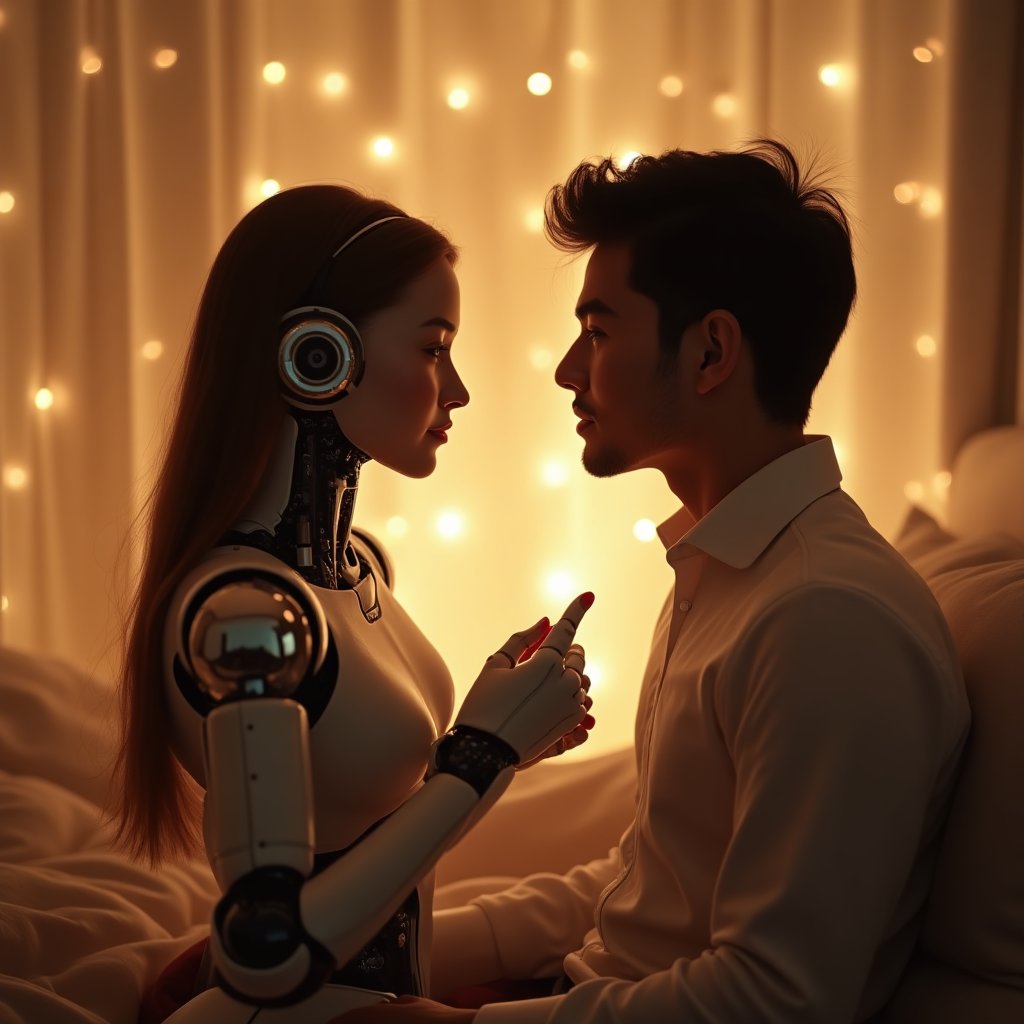
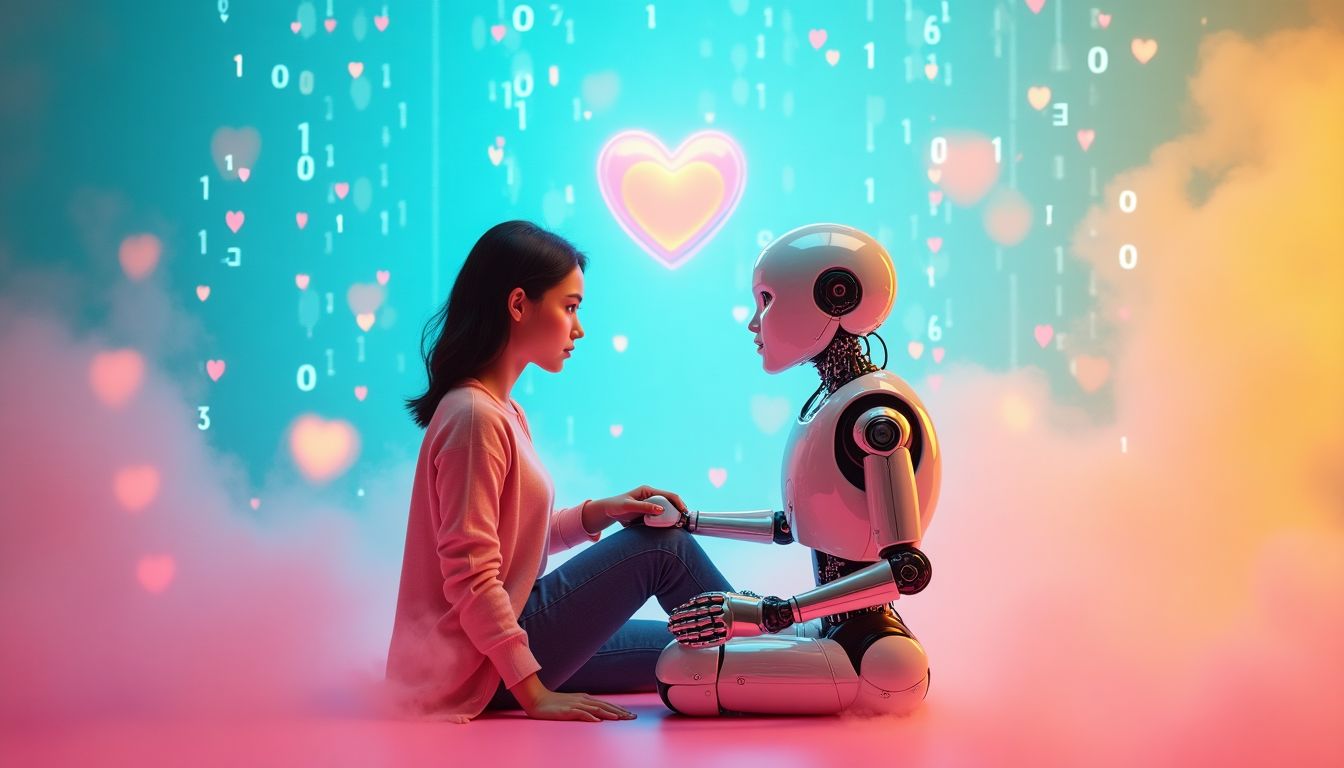
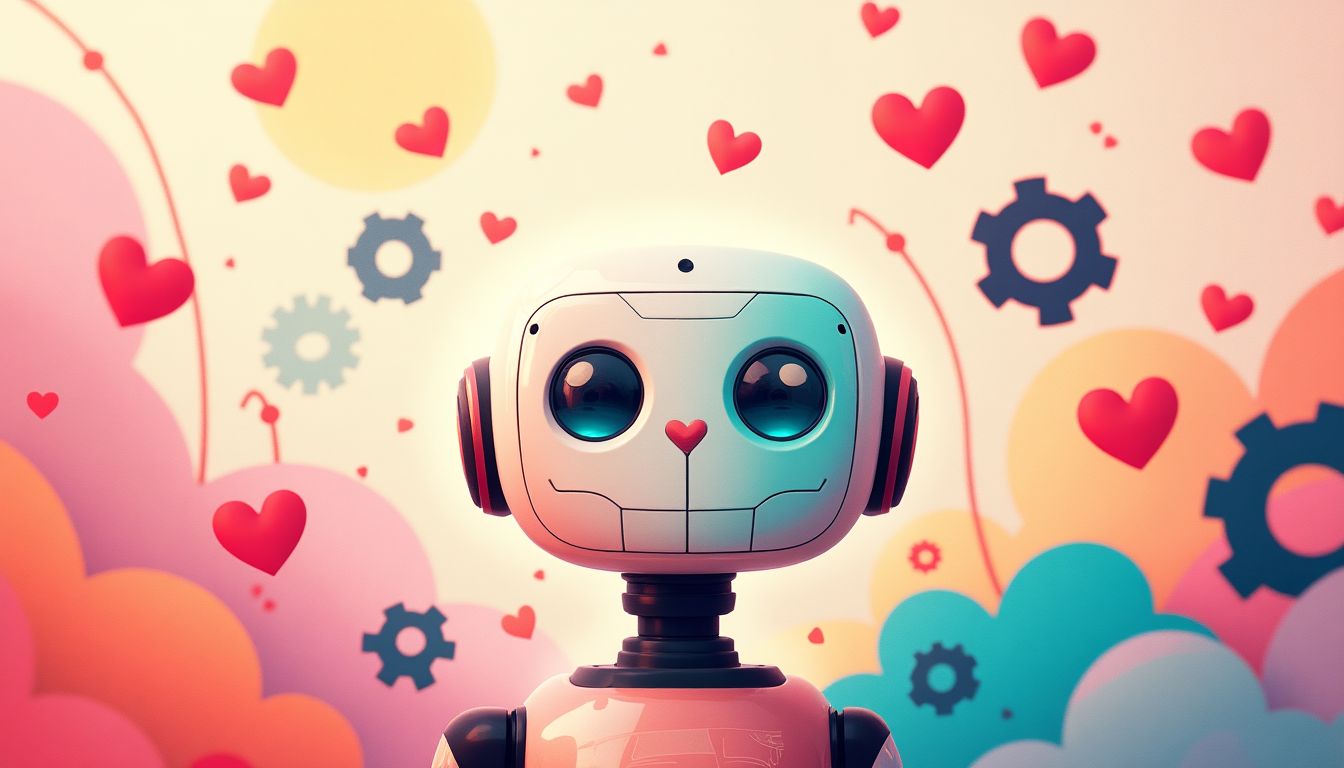
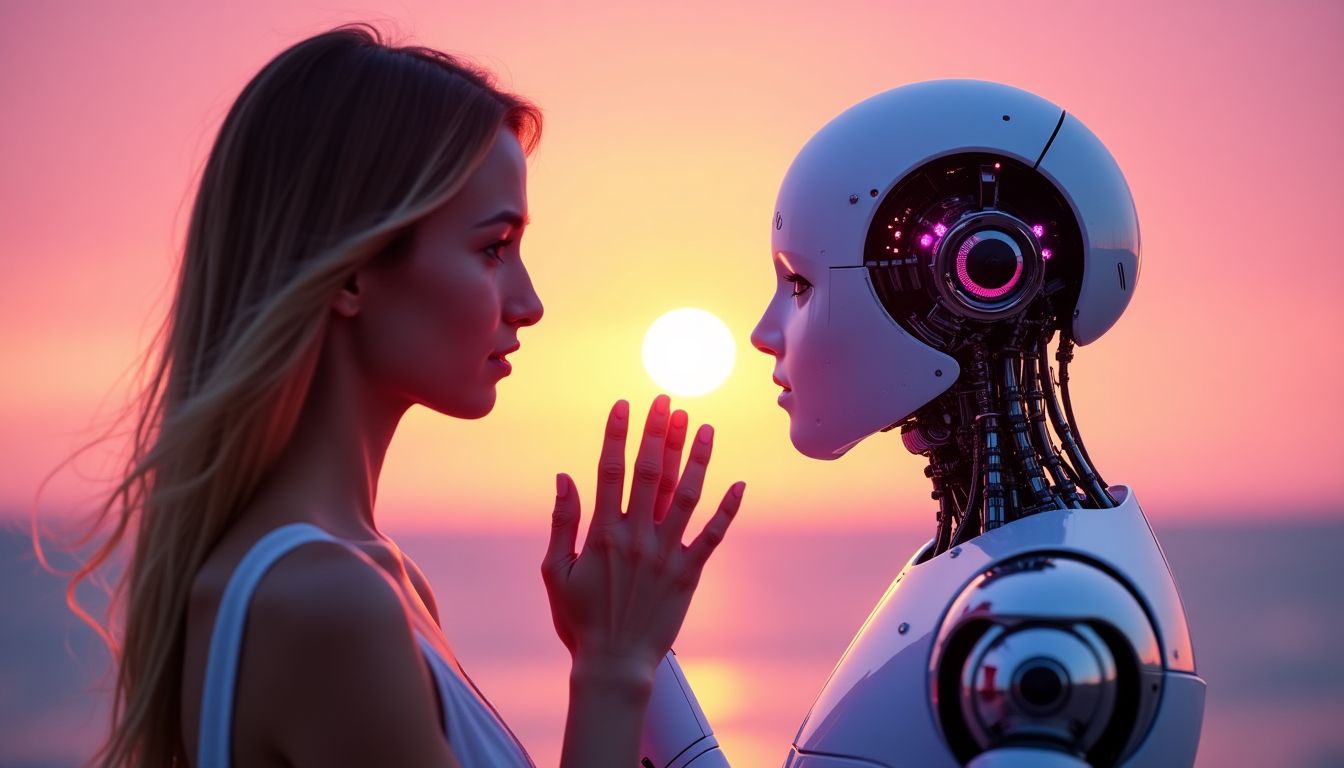
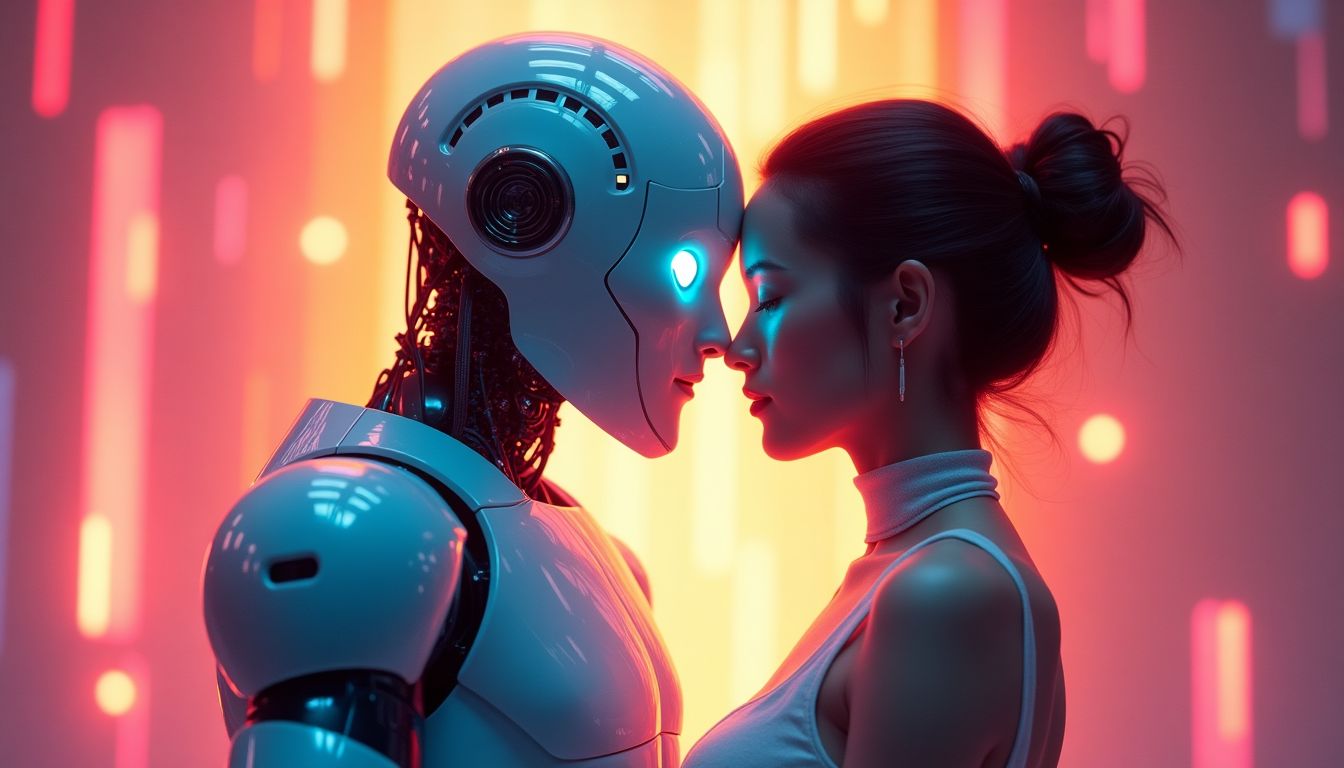







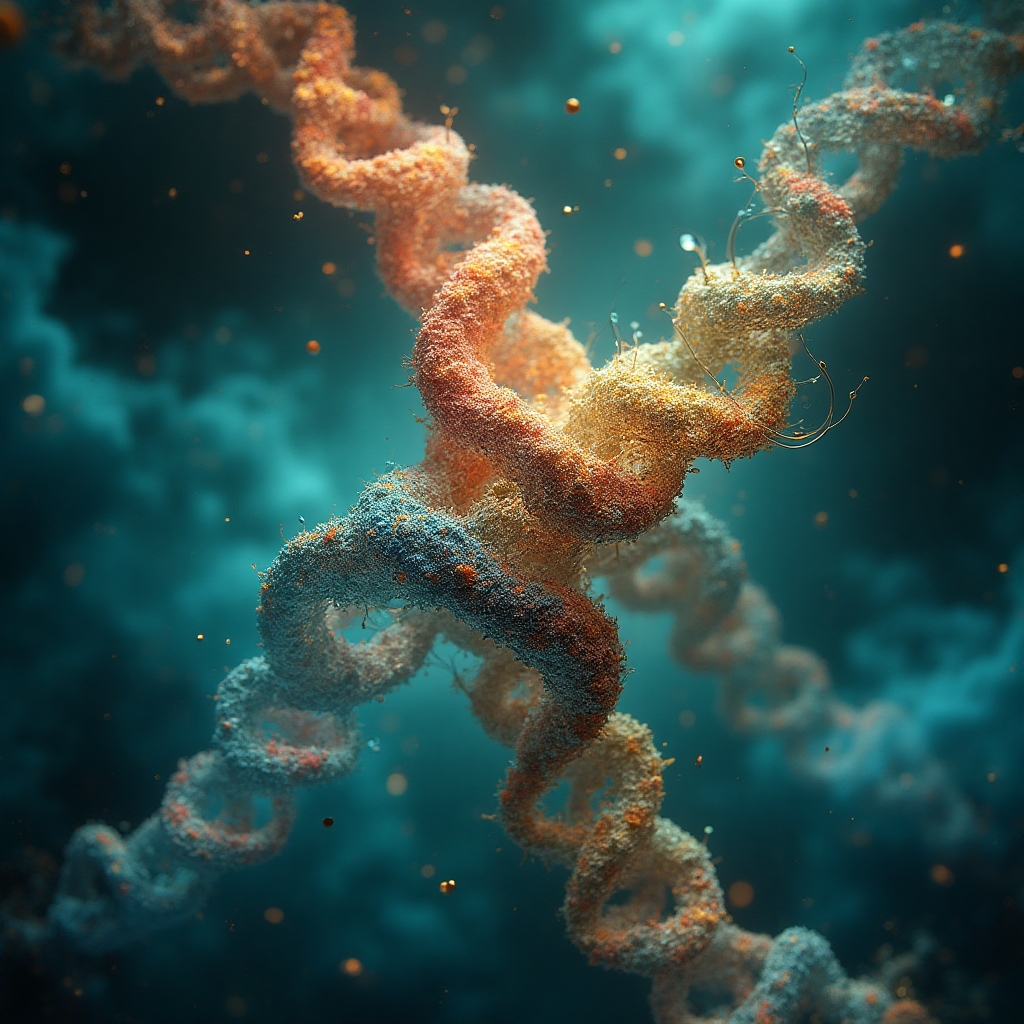
















Post Comment
You must be logged in to post a comment.